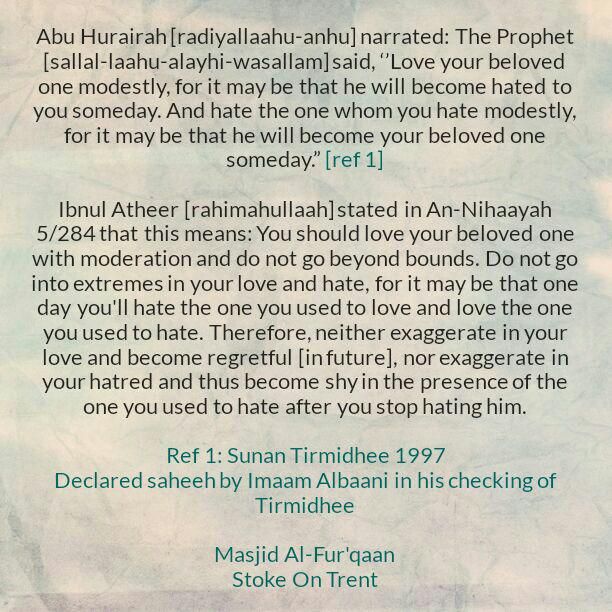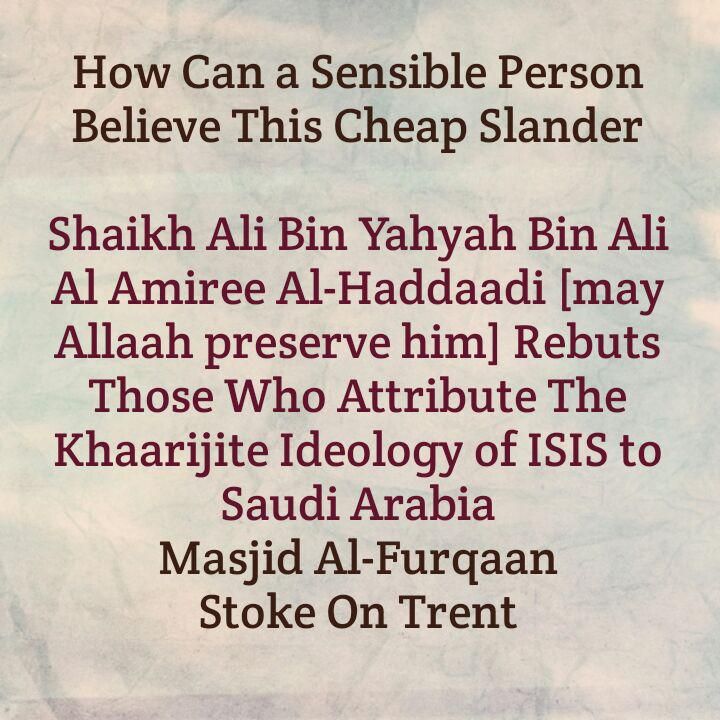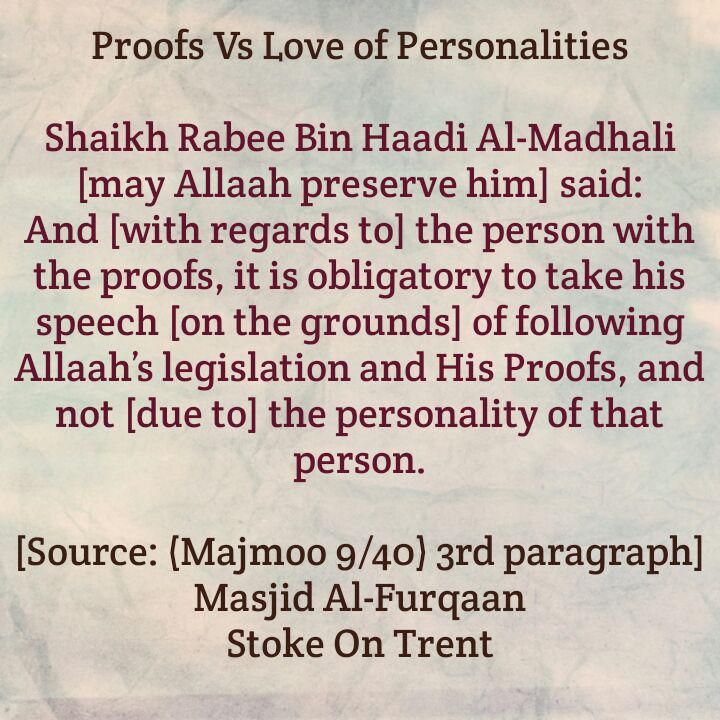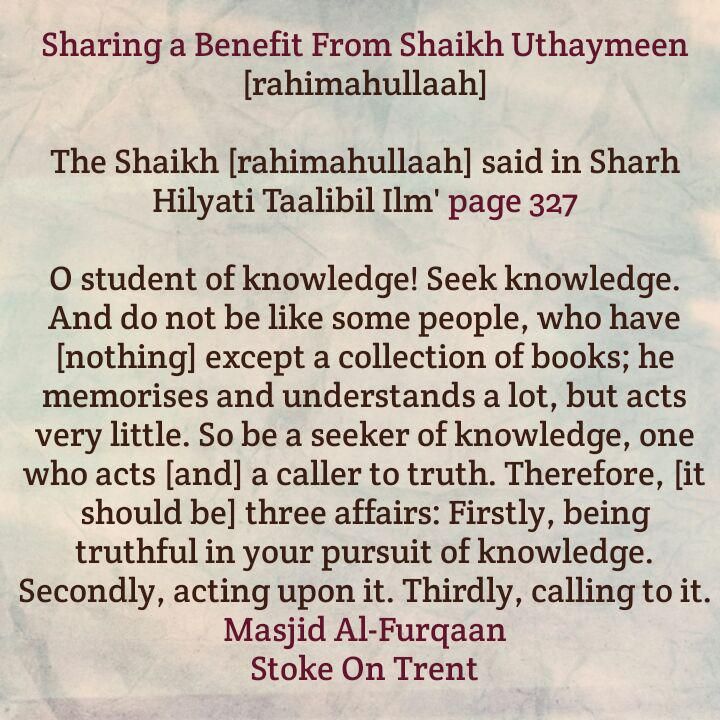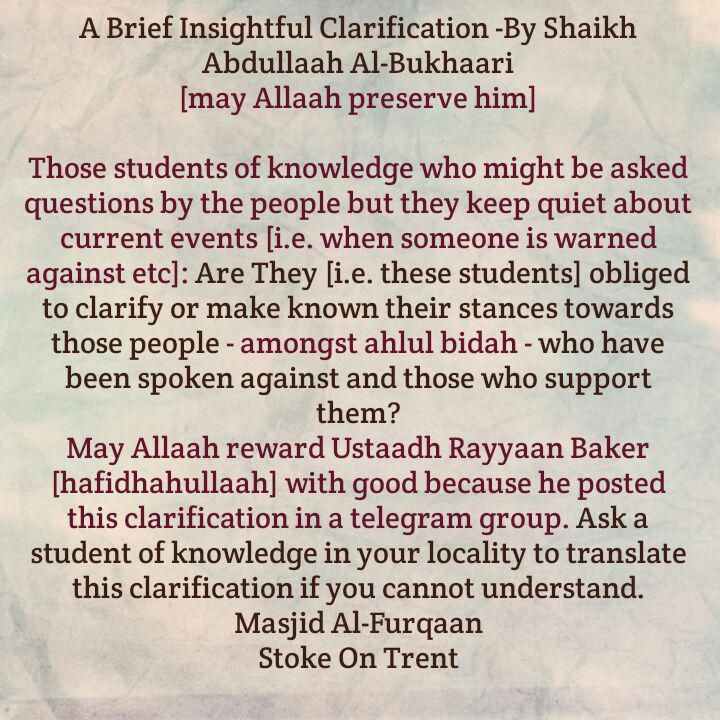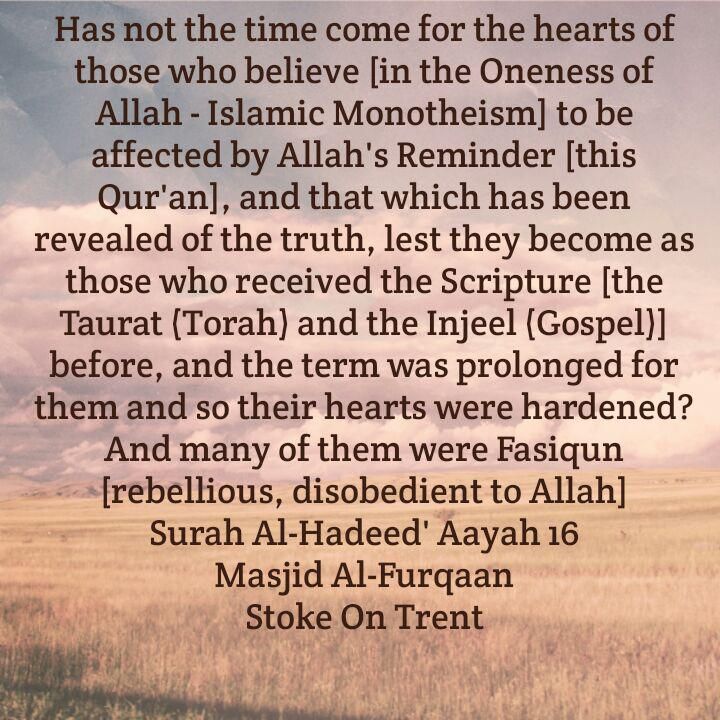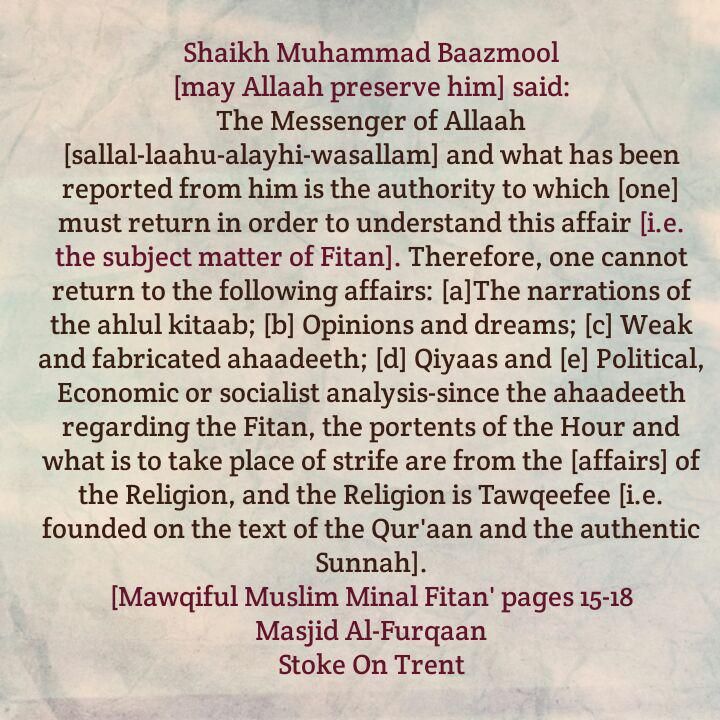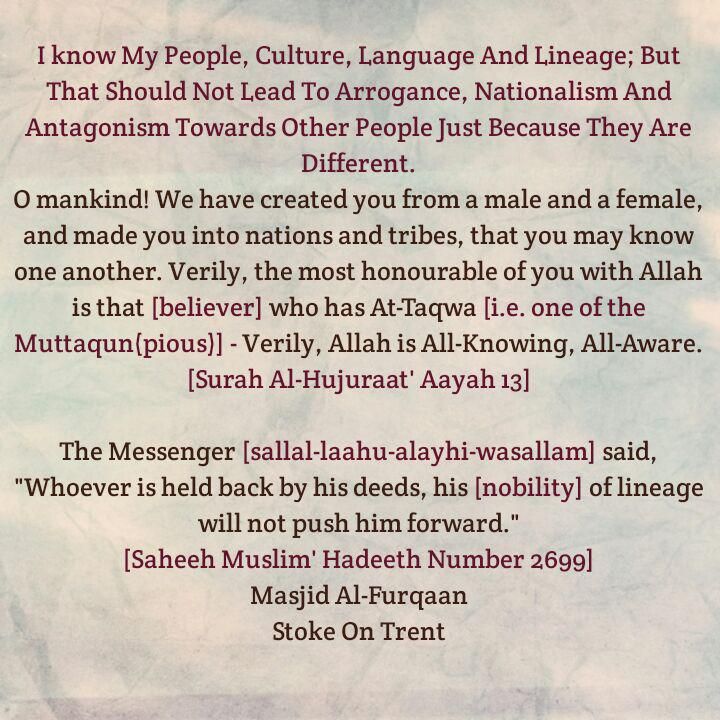In The Name of Allaah, The Most Merciful, The Bestower of Mercy
[1] Among Those Affairs of Guidance Regarding the Fitan
Shaikh Muhammad Baazmool [may Allaah preserve him] said: The Messenger of Allaah [sallal-laahu-alayhi-wasallam] and what has been reported from him is the authority to which [one] must return in order to understand this affair [i.e. the subject matter of Fitan]. Therefore, one cannot return to the following affairs: (a)The narrations of the ahlul kitaab; (b) Opinions and dreams; (c) Weak and fabricated ahaadeeth; (d) Qiyaas and (e) Political, Economic or socialist analysis-since the ahaadeeth regarding the Fitan, the portents of the Hour and what is to take place of strife are from the (affairs) of the Religion, and the Religion is Tawqeefee (i.e. its source can only be established from the divine texts of the Qur’aan and the authentic Sunnah).
Therefore, all that is reported from the Prophet (sallal-laahu-alayhi-wasallam) with sound chains of transmission concerning (affairs) that are to take place, then it is obligated on every Muslim to have Eemaan in it, whether it appeals to his intellect or not. And this is the reality of one’s testimony that he (sallal-laahu-alayhi-wasallam) is the Messenger of Allaah (Glorified Be He). Allaah (The Most High) said:
وَمَا يَنْطِقُ عَنِ الْهَوَىٰ
إِنْ هُوَ إِلَّا وَحْيٌ يُوحَىٰ
Nor does he (Muhammad) speak of (his own) desire. It is only an Inspiration that is inspired.” 53:3-4
And Allaah (The Most High) said:
وَمَا آتَاكُمُ الرَّسُولُ فَخُذُوهُ وَمَا نَهَاكُمْ عَنْهُ فَانْتَهُو
And whatsoever the Messenger (Muhammad) gives you, take it, and whatsoever he forbids you, abstain (from it)” 59:7
Umar (radiyallaahu-anhu) reported that: One day while we were sitting with the messenger of Allah there appeared before us a man whose clothes were exceedingly white and whose hair was exceedingly black; no signs of journeying were to be seen on him and none of us knew him. He walked up and sat down by the prophet. Resting his knees against his and placing the palms of his hands on his thighs, he said:”O Muhammad, tell me about Islam”. The messenger of Allah said: “Islam is to testify that none has the right to be worshipped but Allah and Muhammad is the messenger of Allah, to perform the prayers, to pay the zakat, to fast in Ramadan, and to make the pilgrimage to the House if you are able to do so.” He said: “You have spoken rightly’’ And we were amazed at him asking him and saying that he had spoken rightly. He said: “Then tell me about Iman.”He said:”It is to believe in Allah, His angels, His books, His messengers, and the Last Day, and to believe in divine destiny, both the good and the evil thereof.” He said: “You have spoken rightly”. He said: “Then tell me about Ihsan.” He said: “It is to worship Allah as though you are seeing Him, and while you see Him not yet truly He sees you”. He said: “Then tell me about the Hour”. He said: “The one questioned about it knows no better than the questioner.” He said: “Then tell me about its signs.” He said: “That the slave-girl will give birth to her mistress and that you will see the barefooted, naked, destitute herdsman competing in constructing lofty buildings.” Then he took himself off and I stayed for a time. Then he said: “O Umar, do you know who the questioner was?” I said: “Allah and His messenger know best”. He said: “He was Gibreel (Gabriel), who came to you to teach you your religion.” [Reported by Muslim. Kitaab al-Eemaan. Chapter: Imaan, Islaam and Ihsaan. Hadeeth Number: 8]
The testimony in this hadeeth is the statement of the Prophet: “He was Gibreel, who came to you to teach you your religion.” And the guiding principle in the above hadeeth is that he (sallal-laahu-alayhi-wasallam) asked a question about the Hour and its circumstances, and he established that it is something included in the affairs of the Religion. The affairs of Fitan and its circumstances, and the affairs of strife are all related to the (portents) of the Hour. Therefore, it is included in the Religion and it is not for anyone to speak about it based on his own (opinions, views, analysis or interpretations etc). [Ref 1: End of Quote]
[2] Referring Back To the Senior Scholars in Times of Fitan and Affairs Related To Universal Public Safety, And Not To Spread News in Haste
Allaah (The Most High) said:
وَإِذَا جَاءَهُمْ أَمْرٌ مِّنَ الْأَمْنِ أَوِ الْخَوْفِ أَذَاعُوا بِهِ ۖ وَلَوْ رَدُّوهُ إِلَى الرَّسُولِ وَإِلَىٰ أُولِي الْأَمْرِ مِنْهُمْ لَعَلِمَهُ الَّذِينَ يَسْتَنبِطُونَهُ مِنْهُمْ ۗ وَلَوْلَا فَضْلُ اللَّهِ عَلَيْكُمْ وَرَحْمَتُهُ لَاتَّبَعْتُمُ الشَّيْطَانَ إِلَّا قَلِيلًا
When there comes to them some matter touching (public) safety or fear, they make it known (among the people), if only they had referred it to the Messenger or to those charged with authority among them, the proper investigators would have understood it from them (directly). Had it not been for the Grace and Mercy of Allaah upon you, you would have followed Shaitaan (Satan), save a few of you.'[4:83]
Imaam Ibn Katheer (rahimahullaah) said: ”In this ayah (there) is a rebuke against the one who rushes towards affairs and then gives news about it before verifying it – circulates and spreads it -and perhaps there is no credibility in it.”
Therefore, this ayah obligates verification and clarification when (news) is heard, as Ibn katheer (rahimahullaah) mentioned. It rebukes the one who hastens in transmitting and spreading (news) before verifying its credibility.
This ayah (also) guides to another affair and that is (important news touching public safety and fear) is to be relayed to those in authority from amongst the Scholars and the Rulers and not to the common people, for there is no benefit in transmitting it to the common people; rather what is of benefit is that it is transmitted to the people in authority because they are those with a sound understanding of the affairs and the benefits that are extracted from them. They are the ones with the ability to avert the harmful affairs.
Ibn Katheer then mentioned a number of narrations about being careful about hastiness and lack of verifying news- and from them is a narration by Abu Hurairah (radiyallaahu-anhu) that the Prophet (sallal-laahu-alayhi-wasallam) said: ‘’It is enough for a man to prove himself a liar when he goes on narrating whatever he hears’’.
And Mugheerah bin Shubah (radiyallaahu-anhu) said, ‘’The Messenger of Allaah (sallal-laahu-alayhi-wasallam) forbade Qeel Wal Qaal (i.e. so and so said)’’. Ibn Katheer (rahimahullaah) said, ‘’It is the one who narrates a great deal of that which the people say without verification, contemplation and clarification’’.
Then Ibn Katheer (rahimahullaah) stated:
The hadith of Umar (radiyallaahu-anhu) collected by Bukhaari and Muslim should be mentioned here; when Umar was told that the Messenger of Allaah (sallal-laahu-alayhi-wasallam) divorced his wives, he left his house and entered the mosque, where he found the people talking about it; so he could not endure waiting and ask for the permission of the Prophet (sallal-laahu-alayhi-wasallam) to speak to him; then Umar asked the Prophet, saying, ‘‘Have you divorced your women?’’ The Prophet (sallal-laahu-alayhi-wasallam) said, ‘No’. So Umar said, I said ‘Allaahu Akbar……’
And in the narration collected by Imaam Muslim, Umar said, I asked, ‘Have you divorced them?’ The Prophet (sallal-laahu-alayhi-wasallam) said, ‘No’. So I stood by the door of the mosque and shouted with a loud voice, saying, ‘The Messenger of Allaah did not divorce his wives’. Then the ayah (i.e. Ayah 83, Surah Nisaa) was revealed. Umar said, ‘I investigated this affair properly’ (i.e. whether the Prophet did divorce his wives).
Imaam As-Sadi [rahimahullaah] said about this Aayaah [i.e. An-Nisaa 83]: This is a moral conduct [commanded by Allaah] to His slaves – that they do not do this [i.e. hasten to spread news]. And it is obligated on them that when there comes to them an affair from the important affairs – matters related to a universal benefit for the people, public safety and those affairs on which depends the sorrow or happiness of the believers, or an affair of public fear which may bring about calamity upon them- that they should verify the [news of that affair] and not to be hasty in spreading it; rather they should refer it back to the Messenger [sallal-laahu-alayhi-wasallam] and to those in authority- the people of sound opinions, the people of knowledge; those who can give sound advice, the people of intelligence and those who approach affairs with calmness, and they are those who know what is of overriding benefit and that which is in opposition to it [i.e. the scholars]. So, if they see that disseminating such news will bring about an overriding benefit for the Muslims, strengthen them, bring about happiness and make them vigilant over their enemies, then they would disseminate such news; but if they see that there is no overriding benefit in disseminating such news, or that there is benefit in it, but there is more harm in doing so; then they would not circulate such news. That is why Allaah stated:
وَلَوْ رَدُّوهُ إِلَى الرَّسُولِ وَإِلَىٰ أُولِي الْأَمْرِ مِنْهُمْ لَعَلِمَهُ الَّذِينَ يَسْتَنبِطُونَهُ مِنْهُمْ
‘’If only they had referred it to the Messenger or to those charged with authority among them, the proper investigators would have understood it from them (directly)’’- Meaning: They would have derived from it [the proper cause of action] through contemplation and through their correct opinions and rightly guided sciences.
Therefore, in this there is proof regarding a principle related to a moral conduct, that when an [important affair] from the [important affairs] suddenly appears, it is obligatory to refer it to those who are competent in the affair and one should not put himself forward before them, for that is closer to correctness and [safer] in preventing mistakes. And in this, there is a prohibition against being hasty in circulating news [that is related important affairs of public safety or fear] and a command to contemplate before speaking- to look into the affair, as to whether it is an affair of overriding benefit to be dealt with, or whether it should be avoided if it does not carry an [overriding benefit].
[وَلَوۡلَا فَضۡلُ ٱللَّهِ عَلَيۡڪُمۡ وَرَحۡمَتُهُ – Had it not been for the Grace and Mercy of Allah upon you]- Meaning: by way granting you the ability to act upon righteousness, instructed you with moral conducts and taught you that which you never knew, then [لَٱتَّبَعۡتُمُ ٱلشَّيۡطَـٰنَ إِلَّا قَلِيلاً۬ – you would have followed Shaitan (Satan), save a few of you].
[3] Scholars and Those Whom They Recommend For The Task Are The Ones Obligated With the Task Of Unveiling The Plots and Plans of The Enemies and Not The Conspiracy Theorists, Rationalists etc
Shaikh Rabee Bin Haadee Al-Madkhalee (may Allaah preserve him) says:
So it is not permissible for the Ulamaa to remain heedless of their plans (i.e. the enemies of Islaam), their actions, their publications, their missionary activities and their various calls (to the Muslims). And also the various poisons they are infusing – which are in opposition to the Quraan and the Messenger (sallallaahu alayhi wasallam) and his Sunnah. And nor of what plans they have for (the destruction of) the beliefs and methodologies of Islaam. It is not permissible either, to remain heedless of their concentrated efforts to Christianize or secularize the Muslim youth. And along with that, the Muslim youth and the students are not able to oppose this plan and strategy. Rather it is necessary that the distinguished Ulamaa – those who are experienced and shrewd – it is for such people, in all the places to undertake this duty. So it is obligatory for some of the intelligent and ingenious people from the field of Aqeedah to be mobilised for opposing these plans. And likewise it is a must that the intelligent and distinguished from amongst the specialists in the Sunnah – that they be mobilised for the refutation of these and similarly the eminent and distinguished from amongst those in the fields of Orientalism for the refutation of the plans of the Orientalists.” (Ahl ul-Hadeeth, p.102)
He also says:
“I myself believe that it is a benefit – rather it is of necessity – that we know what the enemies are planning for us, and that it is necessary for us to prepare (ourselves in strength) to destroy their plans. However, I do not exaggerate in this matter, rather my view is the view of our Ulamaa and they have all agreed upon this – that amongst the obligatory matters there are some that are Fard Ain and others that are Fard Kifaayah – and even if knowing the state of the enemies is harmful – it is still necessary for us to know it – but it is treated as Fard Kifaayah. When some attend to it, then the harm is removed from the rest” up until he said: “So I consider that there is no criticism for the Ulamaa and the students of knowledge who take great concern for preserving the Shareeah of Allaah – in terms of the Book, the Sunnah and its understanding – for this is one of the duties of the Kifaayah actions. And I believe that these people are more superior, noble, truthful and of more benefit to Islaam than those who are weak in their knowledge of the religion of Allaah or those who have no share in acquainting themselves with it.” [Ref 3. End of quote]
[Ref 1: Source: Mawqiful Muslim Minal Fitan. Page15-18’ by Shaikh Muhammad Baazmool. Abridged and slightly paraphrased]
[Ref 2: Al-Fitnah Wa Mawqiful Muslim Minhaa’ 78-83 by Shaikh Muhammad Aqeel. Abridged and slightly paraphrased]
[Ref 3. An excerpt from an article at www.salafipublications.com titled: The Salafis and Looking into the Affairs of the Ummah]

